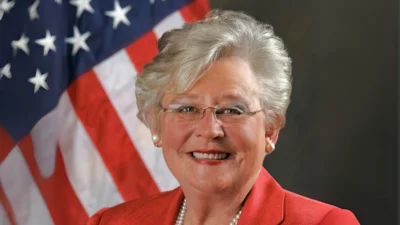The publication is reproduced in full below:
Tribute to Richard C. Shelby
Madam President, I saved my tribute to the most senior retiring Republican Member for late in the year. But even with mere days remaining until the end of his term, our colleague's calendar has been quite packed, not with fancy farewell parties but with a final chapter of high-stakes negotiations and tireless legislative work on behalf of his State, our Nation, and, in particular, our Armed Forces. It is no surprise that Senator Richard Shelby's final days in the Senate see him running through the tape and burning the literal midnight oil.
The State of Alabama has sent some prolific and powerful Senators to this Chamber over its history, but Richard Shelby has surpassed them all. He is not just the longest serving Senator from Alabama. He is the most influential. Our friend is one of the most effective legislators the U.S. Senate has ever seen.
Growing up outside Depression-era Birmingham, Richard Shelby was not automatically predestined for the halls of power. But even before our friend had grown into the fullness of his commanding stature, I understand that young Richard Shelby was never afraid to throw his weight around, whether he was fighting for his team on the football field or putting himself between a classmate and a bully on a streetcar.
As a young man, there was hardly any academic or athletic test that Richard didn't pass with flying colors. But the way I hear it, the most important test was ensuring that a pretty girl named Annette was delivered back home in time for curfew after their first date.
Annette was intrigued by this handsome young man, but she also loved and respected her own family. So she declared that if Richard was late dropping her off, the first date would be the last. Thus, a partnership for the ages was born.
And ever since the Shelbys' first campaign victory in 1970, the people of Alabama have had a natural campaigner, a trailblazing problem-solver, and an intellectual giant looking out for their interests. And, in addition to Annette Shelby, they have also gotten Richard in the package deal.
Dr. Annette Shelby has charted a historic course of her own here in Washington, including becoming the first woman to hold a tenured professorship at Georgetown's Business School.
Meanwhile, across the city, the other half of the Shelby partnership was developing a reputation for visionary leadership here in Congress. Where Richard is concerned, the word ``visionary'' is neither throwaway praise nor exaggeration. It is simply accurate. People around the Senate like to say that Richard Shelby doesn't just see down the road; he sees down the road and also around the corner.
Our colleague has not just known how to fight for Alabama and the individual issues and debates that each day has brought. He has also invented creative, new, forward-looking visions and missions that nobody else had dreamed of and then, methodically, set about turning them into reality.
Richard has trained his efforts on a small number of core priorities at one time, the places he is most convinced he can make an outsized difference. And once one of those big priorities is identified, he has been like a dog after a bone.
Take the city of Huntsville. As the story goes, a few decades ago it was a sleepy town by the Tennessee border. Today, it is a booming technological hub for cutting-edge industries like space exploration and missile defense.
Or take the Port of Mobile. The way I understand it, the spark was an overseas trip where Richard saw firsthand the latest international shipping infrastructure that was rapidly taking shape out in Asia. I think the sentiment was more or less this: If Singapore can do this, why not Mobile?
So today, what used to be a small inlet on the gulf coast is now a booming hub for shipping, a transformation that is sending ripples of prosperity across the entire region.
But even our visionary colleague's prolific foresight occasionally hit its limits. Richard's good friend, our former colleague Phil Gramm, had the good judgment to switch to the Republican Party way back in 1983. He immediately started working on his good buddy to follow suit. But even after a charm offensive that I am told involved multiple White House lunches with President Reagan, even after Robert Byrd had skeptically accused Senator Shelby of harboring ``definite Republican tendencies,'' it still took our friend until after the Republicans' landslide victories in 1994 to finally cross the threshold and join our team.
Well, the rest is history.
The iconic phrase ``Chairman Shelby'' could refer to our colleague's time steering sensitive oversight at the helm of the Intelligence Committee, or his mastery of the most complex matters as head of the Banking Committee, or his time lending a steady hand to institutional priorities as Rules Committee chair, or, more recently, the years our colleague has spent in the No. 1 or No. 2 slots on top of the Appropriations Committee, directing the American people's money into key national priorities, most especially our constitutional duty to provide for the common defense.
But Richard's Washington expertise never came at the expense of his home-State roots--just the opposite. The national renown that Richard Shelby accrued was just a pathway by which his beloved Alabama came to punch more and more above its weight.
A long line of Shelby staffers have learned that there is no need for a road map or a GPS when they have got the Senator himself in the car. Our friend knows every single backroad and highway exit. He knows every good ``meat and three.'' And if there is ever time to stop in for lunch or coffee, just pick a spot, and Richard will know a handful of the folks inside.
How exactly has our colleague sustained this level of sharpness and influence over such a historic career?
Well, for one thing, I understand the seasoned chairman is a frequent visitor to the ``Health Committee.'' That is his moniker for the Senate gym.
Likewise, I have it on good authority that, at one point, our friend held the distinction of having more books checked out in his name from the Library of Congress than any other Member in either Chamber.
Occasionally, having such a voracious reader for a colleague can lead to trouble. Years ago, shortly after the passing of President Reagan, I was wrapping up a meeting with my Banking Committee colleague when I half-wondered whether we could find a way to honor the Gipper with a place on our currency. With no particular malice toward Alexander Hamilton in mind, I loosely suggested: What about, perhaps, the $10 bill?
But, alas, little did I know that I was sitting across from the most recent person in America to finish Ron Chernow's gigantic, newly released biography of Hamilton. This was the book that would go on to inspire the hit musical and spark a big revival of interest in Hamilton. Richard Shelby had spent weeks eating up every single page, admiring Hamilton's genius more and more with every chapter.
So let's just say, a few minutes later I was back at the drawing board.
It is difficult to imagine the Senate without Richard Shelby, but I am not too concerned that the opposite will hold true. As much as Richard has loved this institution and excelled in it, we know our colleague can imagine life beyond the Senate just fine. There will be even more time to stay a student of history, even more time for duck hunting with good friends. The visionary brainstorming for Alabama and our Nation won't stop--oh, no. But our friend will get to balance it out with a whole lot more time with his beloved Annette, their two sons, and their grandkids--more time to enjoy the home State that has been literally transformed by Richard's passion and vision.
Richard, thank you very much for an outstanding career.
The PRESIDING OFFICER. The Senator from Illinois.
Mr. DURBIN. Madam President, I came to the floor to speak on another topic, but I want to join in the comments of the Republican leader about Richard Shelby of Alabama.
We became friends under different political circumstances when he served in the House of Representatives. It has been my honor to count him as a friend and to have the occasion to travel with him and Annette, his wife, in the past. I am going to miss my friend.
I wish you well, and I am sure you have got some football to watch in Alabama when you get home.
SOURCE: Congressional Record Vol. 168, No. 197
The Congressional Record is a unique source of public documentation. It started in 1873, documenting nearly all the major and minor policies being discussed and debated.
Senators' salaries are historically higher than the median US income.



 Alerts Sign-up
Alerts Sign-up